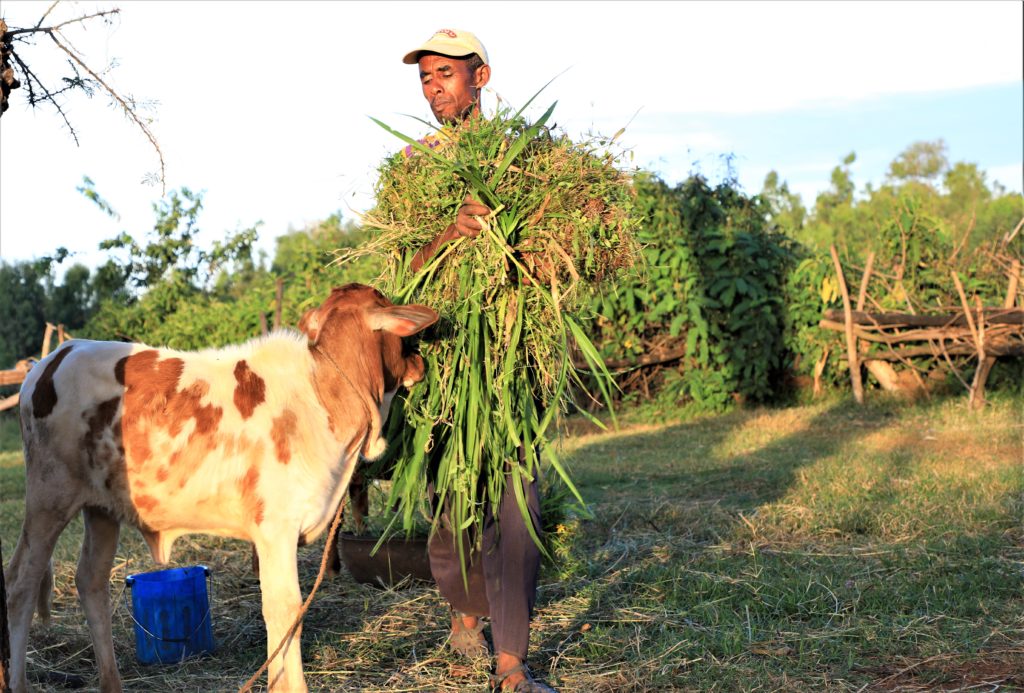by Nicole Lefore
Research scientists at Texas A & M University have completed a study with funding from USDA Foreign Agricultural Service to expand on research also supported by ILSSI and the Livestock System Innovation Lab. Initially, researchers at TAMU, International Livestock Research Institute and Bahir Dar University mapped the suitability and household impacts for growing different types of fodder under irrigation in Ethiopia. Now with USAID FAS support, researchers have been able to analyze how climate variability affects irrigated fodder production in the future.
Using projected climate data for the 2040s and 2070s, the results for Robit (Amhara Region) and Lemo (SNNPR) suggest that while temperatures and evapotranspiration will increase, yields for both Napier and Vetch are also likely to increase. Socio-economic analysis suggests that farmers who irrigate fodder are likely to have higher income and more profitability than non-irrigators under climate change scenarios. Results point to good news for households that irrigate fodder, and more broadly.

The evidence and maps generated are significant for policy and planning: animal-source foods are important to nutritional security in Ethiopia, and irrigation can help to overcome shortages of fodder for livestock and dairy production, especially in the dry season. In addition, livestock is a major part of the overall agricultural sector; livestock is critical to employment, agricultural practices and household resilience. Under climate scenarios, irrigated fodder production could have a positive outcome at multiple scales through increasing available feed for the livestock sector and in turn, improving nutritional security through better access to dairy and meat. See the full Report.
The work utilized the Integrated Decision Support System (IDSS) – developed under the Feed the Future Innovation Lab for Small Scale Irrigation (ILSSI) – to evaluate the integrated impacts of farming systems on production, environmental sustainability, and household income and nutrition. The project Principal Investigator is Dr. Raghavan Srinivasan, Professor, and Director, with co-PIs Dr. Yihun Dile Taddele, Dr. Abeyou Wale Worqlul and Dr. Jean-Claude Bizimana.


